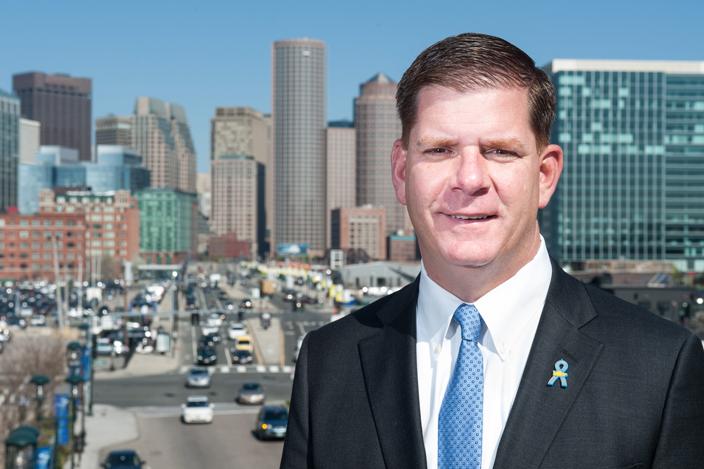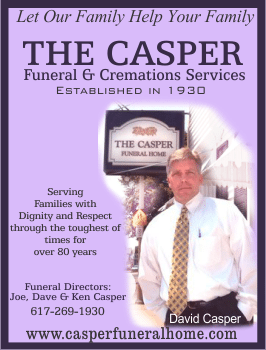|
Building on his commitment to
strengthen public safety in Boston, Mayor Martin J. Walsh joined Boston
Police Commissioner William G. Gross, city officials, community organizations
and clergy members to discuss plans and initiatives the City of Boston will implement
in an effort to reduce violence throughout the summer months. Mayor Walsh
today also announced Tracy Litthcut and Rufus J. Faulk as
co-directors of the Mayor’s Office of Public Safety, which studies,
develops, and puts in place violence intervention and prevention programs and
policies.
“Our focus through our summer
strategy is to ensure our residents feel safe in their community each and
every day,” said Mayor Walsh. “With our partners in the community,
and throughout our neighborhoods, we’re working hard to prevent crime in
Boston by providing positive opportunities for people, and a path away from
violence. Together with our community partners, we’ll continue to use every
tool we have to make sure all residents are safe and supported through our
prevention, intervention, and response work.”
Under the leadership of Mayor
Walsh and Commissioner Gross, the Boston Police Department continues to build
on a strong foundation of community policing, prioritizing relationships with
youth and the community as the key to solidifying trust and building
relationships in Boston’s neighborhoods. BPD’s work starts with positive
interactions in Boston’s communities and in school classrooms, and includes
proactive prevention and diversion for at-risk youth and their families,
providing pathways away from violence for those who are ready to make a
change.
Overall crime is down in Boston by
nine percent and total violent crime is down 12 percent, with property crime
down eight percent, and non-fatal shootings down five percent.
Year-do-date, 292 guns have been recovered from Boston’s streets,
which does not include fake guns or replicas.
“We work very closely with
our city and community partners to prevent violence and provide opportunities
for those in need,” said Commissioner Gross. “While this is a year-round
effort, we are especially focused on the summer months. We will be running
programs and activities for youth and children in every district and
connecting at-risk youth and families with resources and opportunities.”
The BPD has strong partnerships
and collaborations with many agencies, non-profits, and community-based
programs, with more than 175 programs and services across seven city
departments. Programs include:
An array of year-round district activities with
youth;
Support for families of homicide victims and victims
of domestic violence;
Home visits and referrals of at-risk youth to social
workers;
Youth dialogues with community partners;
Coffee with a Cop, flashlight walks with residents,
and Shop with a Cop
Academy training officers to better interact with
youth;
Reentry programs for returning offenders to school
safety days with special needs populations.
Boston’s work is comprised of a multi-pronged approach:
1. Prevention, as partners work to engage
Boston’s young people in positive activities and education.
This includes Boston’s Summer Youth Jobs Program,
mentoring, after school programs, BCYF activities, and the BCYF streetworker
program. Boston also supports the Safe and Successful Youth Initiative, which
intervenes with teens likely to use firearms.
2. Boston’s public safety work also includes a
strong focus onintervention, intervening with youth who are already
involved in violence, or are at a high risk of being involved in violence.
Boston’s programs work directly with gang-involved youth.
These include the BPHC Violence Intervention & Prevention Program, Peace
Walks, National Night Out, Coffee with a Cop.
3. Finally, Boston works to respond to
trauma that has occurred, ending the cycle of violence by helping communities
heal.
Boston has dedicated Trauma Response Response Teams, six
neighborhood-based teams and one citywide mobile team, in addition to a
24-hour trauma hotline.
“Our shared efforts continue
to focus on preventing violence from happening in the community,” said
Chief of Health and Human Services Marty Martinez. “By engaging
thousands of young people and their families year-round and in the summer,
the City works hard with our community partners to create opportunities for
all youth to get on meaningful pathways to success.”
In addition to announcing Boston’s
summer safety strategy, Mayor Walsh today also announced Tracy Litthcut and
Rufus Faulkas co-directors of the Mayor’s Office of Public Safety. The Mayor’s Office of Public
Safety studies, develops, and puts in place violence
intervention along with prevention programs and policies. The Office of
Public Safety includes the Office of Returning Citizens, which
supports those who return to Boston after being released from state, federal,
and county incarceration facilities each year, and works to help those who
were previously incarcerated. The Office also includes My Brother’s Keeper, a
national initiative that addresses persistent opportunity gaps faced by young
men of color.
Tracy Litthcut is the former
Director of Youth Services and Deputy Director of Youth and Young Adult
Development and has over 25 years of executive level public and nonprofit
management experience. He is a recognized national expert on juvenile justice
and public safety policy, in addition to being a recipient of the Clinton
Administration’s Innovation in American Government Award and the Dr. Martin
Luther King’s Dreamer Award.
“I’m proud to be able to
serve the residents of Boston and use my national and local experience to
help create safer lives for all our residents,” said Litthcut.
Rufus J. Faulk is the former
director of victim services at the Massachusetts Department of Corrections
and was previously the program director at the Boston Ten Point Coalition,
responsible for development and initiating of the Boston TenPoint Coalition’s
youth violence reduction plan, targeting some of Boston’s most proven at-risk
adolescents and young adults. Faulk has over ten years of experience leading
services for vulnerable populations and will receive his doctorate in Law and
Policy from Northeastern University this summer.
“I look forward to joining
Mayor Walsh, Tracy Litthcut and Boston’s public safety agencies as we
work to provide more opportunities to Boston’s young people, and end the
cycle of violence and trauma,” said Faulk. “I’m grateful for the
opportunity to share my experience here in Boston, and work with all our
partners to ensure a safe city for all.”
|












